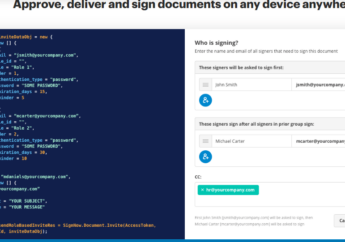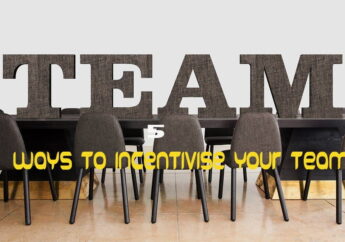Long Meetings Could Be A Waste Of Time – Here’s How You Can Conduct Effective Meetings
by Mashum Mollah Management Published on: 28 June 2019 Last Updated on: 27 August 2020

Although many people are irked by what seems like endless meetings, little is done to change these erred ways. Studies show that ineffectual meetings make people lose up to 31 hours of work each month. Besides, studies show that 50% of the meeting time is wasted and 39% of people might actually take a quick snooze during the meeting.
Those statistics are not encouraging either for organizers or for attendees. However, organizing meetings is a professional skill, not an innate ability. As such, managers need to perfect this skill so they can reap the advantages of effective meetings.
A successful meeting depends on a good plan that takes into account all the factors below:
1. The Goal:

Many meetings are ineffectual because they are about nothing. The first thing a meeting organizer should do is to identify the goal and the desired results.
After that, the whole meeting time should be used constructively to accomplish the set goal, through the particular series of quantifiable results.
Once the goal is set, it can become obvious whether or not the meeting is truly necessary. Some problems can be solved outside of a meeting, without the whole team is there. However, meetings are ideal for brainstorming and information delivery.
2. The Attendees:

Not everyone from the company should attend every meeting. Inviting unnecessary staff bumps the meeting time because they will require additional explanations and clarifications. Besides, these people might not be able to bring a useful contribution to the table so the meeting can be fruitful.
On the other hand, some people might bring key contributions during certain sections of the meeting but lack valuable input during other sections. These people don’t need to stay for the whole meeting, which is why a schedule for guest speakers might be appropriate.
To shorten the meeting time, the invited people should be told about the meeting’s goals and projected results beforehand. This can be easily done via e-mail.
3. The Preparations:

Some meetings are unnecessarily long because the preparations prior to it are lacking. The venue needs to be organized beforehand, so the participants find a welcoming, quiet environment with all the refreshments and materials they need.
These materials also need to be delivered well before the meeting. The meeting agenda, reports, infographics, and spreadsheets shouldn’t be delivered to people when the meeting starts because they will lose time browsing them. Instead, the reading material should be available for the participants a couple of days in advance. A good example would be how financial institutions prepare their reports and charts a few days before meetings. This way, they can easily identify market trends and advantages such as the best personal loan interest rates competitors might be offering.
4. The Agenda:
The agenda regards the meeting’s schedule. This is a framework that directs how the discussion will take place, so it’s the cornerstone of a meeting’s efficiency.
The agenda should include all the topics under discussion. Too many topics will compete for the time, as well as the participants’ attention. That’s why it’s a good idea to limit the number of topics and to set a realistic timeframe for each of them.
It should be clear for each of these items who leads the discussion and what the expected results are. This information should be available for all the participants in advance.
If there are multiple urgent items on your agenda that need to be discussed thoroughly, participants might lose their attention and concentration. In these cases, it’s wise to schedule a few breaks.
5. The Moderator:
Every meeting should have a moderator to conduct it. This person should be disciplined, know the agenda and provide unobtrusive assistance to fulfill the meeting’s goals.
The moderator should start by letting everyone know what the guidelines are and what the agenda is. They should also tell everyone when to speak and what their roles are. Being clear about rules and regulations is the best way to keep companies in check.
The moderator should ensure that all items on the agenda are covered, and keep the participants focused, so the meeting doesn’t lag. The moderator should also make necessary impromptu changes when they are required.
At the end of the meeting, the moderator should summarize the discussions and the proposed solutions for each topic, as well as to conduct the meeting evaluation. If there are follow-up actions to be taken outside of the meeting, the moderator should note each of them down.
The moderator can request further topics of discussion for the following meeting, as well as possible dates and locations.
6. The Time:
An efficient meeting starts at the appointed time, even if some participants are late. The meeting should also end at the established time to avoid inconveniences. However, the schedule must maintain a degree of flexibility when it’s absolutely necessary.
The best way to achieve this is by selecting a timekeeper that works together with the moderator. The timekeeper should constantly check the time estimates for the topics on the agenda to keep the meeting going at a good pace.
7. The Rules:
Every meeting should have its rules to avoid unnecessary time loss. For instance, people who take calls or respond to messages during meetings should be prohibited to do so.
Another policy should regard active listening and respecting the opinions of others. That way, participants will be more open and come with more creative ideas.
The asked question should clarify the matters at hand, and not stem from ulterior motives of rebuttal and self-confirmation.
8. The Note Taker:
The note taker is a key figure to ensure the meeting’s efficiency.
This person should take careful notes and detailed minutes when the agenda regards an essential topic.
If the record is less important, the Note Taker can make less detailed notes, but they should record what the participants resolve and the following actions. These actions should have precise schedules clearly noted by the person who takes notes.
The note taker is responsible for recording the essential points made for all the topics, and they should emphasize the postponed items.
Finally, the note taker should return the meeting notes to all participants during the next 24 hours.
9. The Evaluation:
Each participant should evaluate the meeting with the purpose of improving the efficiency of further meetings.
There are various approaches for this step, whether it’s a written personal appraisal or an open discussion. It’s good to include different types of questions, from open, to yes/ no type, to ranking and rating scale questions to paint a complete picture.
Read Also:







































































































